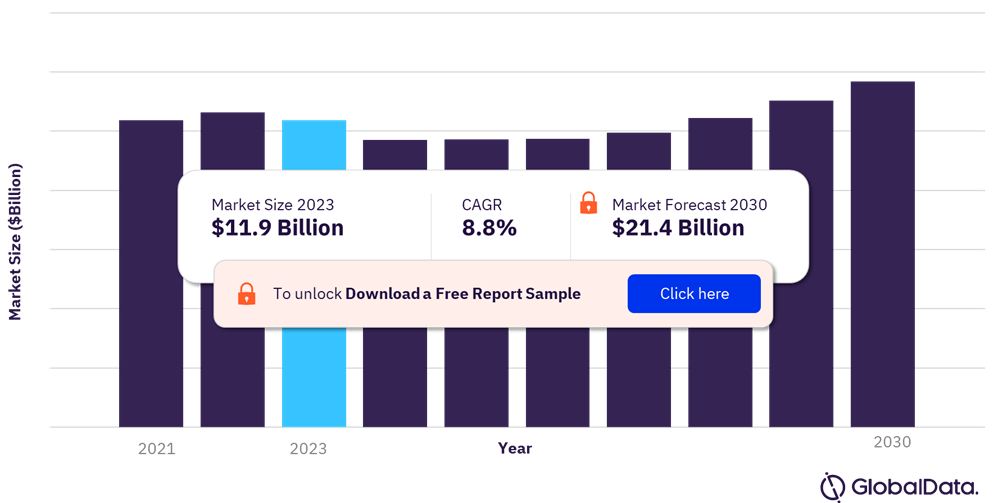The global quality management software market is experiencing a period of significant growth, driven by a confluence of factors. Businesses across industries are increasingly recognizing the value of streamlined quality processes, with software solutions offering a powerful platform to achieve this. This article delves into the key aspects of this market, exploring its current size, projected growth trajectory, and the trends shaping its future.
Market Size and Growth:
The quality management software market is estimated to have reached a value of USD 10.18 billion in 2023 [1]. Analysts predict a healthy compound annual growth rate (CAGR) of around 10.4% to 10.6% during the forecast period, reaching a potential market size of USD 16.10 billion by 2030 [1, 2]. This growth reflects the rising demand for centralized and efficient business processes, particularly in a digital landscape.
Factors Driving Market Growth:
Several key drivers are propelling the quality management software market forward:
- Need for Streamlined Processes: Businesses are constantly seeking ways to improve efficiency and reduce operational costs. Quality management software automates tasks, eliminates redundancy, and centralizes quality data, leading to a more streamlined approach.
- Regulatory Compliance: Regulatory bodies across industries are enforcing stricter quality standards. Quality management software helps businesses adhere to these regulations by providing tools for document control, non-conformance reporting, and audit trails.
- The Rise of Digital Transformation: Industry 4.0, characterized by the growing integration of smart devices, the Internet of Things (IoT), and the Industrial Internet of Things (IIoT), is transforming how businesses operate. Quality management software that integrates with these technologies allows for real-time data collection and analysis, enabling proactive quality control measures.
- Focus on Customer Satisfaction: In today's competitive environment, delivering high-quality products and services is crucial for customer satisfaction and loyalty. Quality management software helps businesses identify and address quality issues early, leading to improved customer experiences.
- The Six Sigma Advantage: Integrating the Six Sigma methodology, a data-driven approach for continuous improvement, into quality management software offers a powerful tool for minimizing defects and optimizing processes.
Market Applications:
Quality management software finds application across a wide range of industries, including:
- Manufacturing: Ensures consistent product quality, reduces scrap rates, and streamlines production processes.
- Healthcare: Improves patient care by managing medical records, tracking medication administration, and ensuring adherence to safety protocols.
- IT and Telecommunications: Facilitates the development and delivery of high-quality software and telecommunication services.
- Transportation and Logistics: Optimizes supply chains, minimizes delivery errors, and ensures product safety during transportation.
- Consumer Goods and Retail: Maintains consistent product quality throughout the supply chain and helps manage product recalls efficiently.
- Defense and Aerospace: Ensures compliance with stringent regulations and promotes the development of safe and reliable defense and aerospace products.
Key Market Players:
The quality management software market is a competitive landscape with a mix of established players and emerging companies. Some of the leading vendors include:
- Aras Corporation
- Arena Solutions Inc.
- Autodesk Inc.
- Dassault Systèmes SE
- Siemens AG
- Oracle Corporation
- Parasoft Corporation
- Microsoft
- Hewlett-Packard Enterprise Co.
- MasterControl Inc.
- Sparta Systems Inc.
- SAP SE
- PSC Software Company
These companies are constantly innovating and expanding their offerings to cater to the evolving needs of businesses. Mergers and acquisitions are also a trend, as companies seek to gain a competitive edge through consolidation and the integration of complementary technologies.
Future Trends:
The quality management software market is expected to witness exciting developments in the coming years, driven by advancements in technology and evolving customer needs. Here are some key trends to watch:
- Artificial Intelligence (AI) and Machine Learning (ML): AI and ML algorithms will be increasingly embedded within quality management software to automate tasks, predict quality issues, and provide real-time insights for proactive quality control.
- Cloud-Based Solutions: Cloud-based quality management software offers advantages such as scalability, accessibility, and reduced IT infrastructure costs. This trend is expected to continue, with more vendors offering cloud-based solutions.
- Integration with Big Data Analytics: Integrating quality management software with big data analytics platforms will allow businesses to leverage vast amounts of data for deeper quality insights and informed decision-making.
- Focus on User Experience (UX): As user adoption is critical for successful software implementation, vendors will place greater emphasis on developing intuitive and user-friendly quality management software interfaces.
Conclusion:
The quality management software market is poised for sustained growth in the years to come.
View Sample Report for Additional Insights on the Quality Management Software Market Forecast, Download a Free Report Sample

